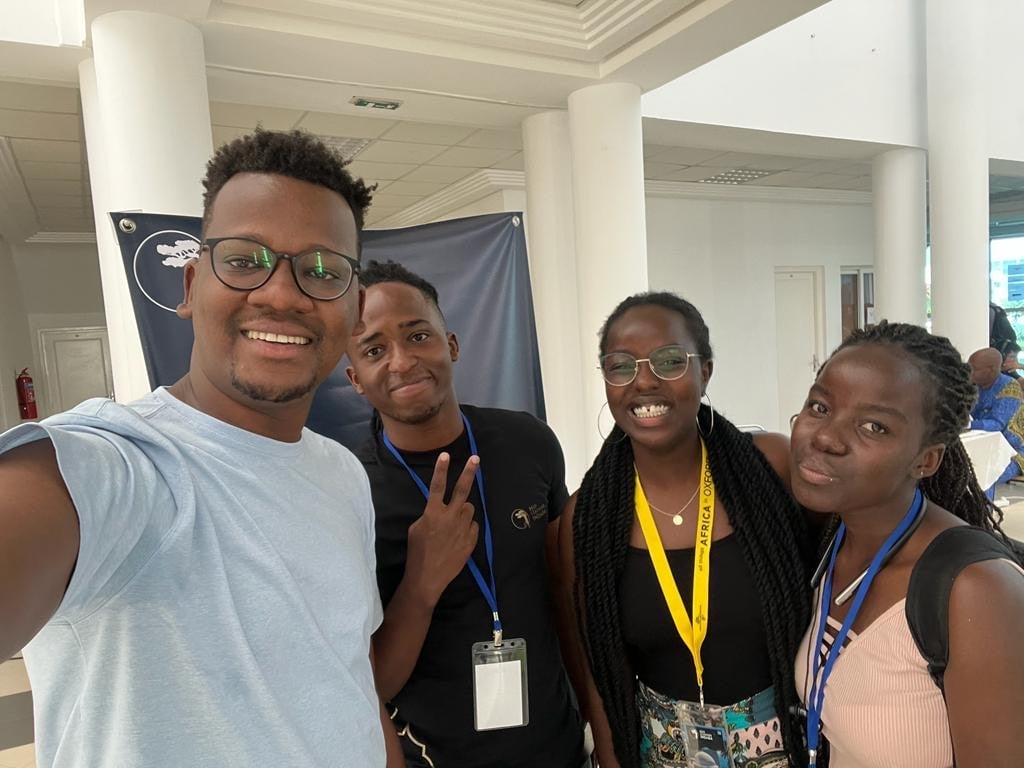Why Africa needs more data scientists
As the demand for data scientists grows globally, a shortage of talent exists, and remains highest in Africa. Quartz spoke to Zindi's Rose Delilah Gesicho.

Big Data and analytics has become an invaluable segment of every business in the world but as the demand for data scientists grows globally, a talent shortage exists, with it being worst felt in Africa.
Though a number of data science training institutions are mushrooming across the continent, the gap to be bridged remains high, even as fields of AI such as machine learning, deep learning, computer vision, speech recognition, neurals, and Natural Language Processing (NLP) form the future of businesses.
Faced with a myriad of industrial bottlenecks, Africa needs data scientists more than any other continent, so it can create tailored solutions to its challenges. Data sits at the center of the global Fourth Industrial Revolution (4 IR) revolution with analysts believing now is an opportunity for Africa to create its own talent to help businesses make informed decisions, predict markets, and prepare for unforeseen calamities.
The global data science market is growing
The global data science platforms market is worth $95 billion, and is projected to grow by more than five times by 2030.
One of the startups leading the training of data scientists in the continent is South Africa-based Zindi, which told Quartz that since 2018 it has trained 49,000 data professionals across the continent.
It has worked with Google, Deepmind, Nvidia, and Microsoft to upskill thousands of African data scientists. It also hosts UmojaHack Africa, Africa’s largest machine learning hackathon for university students, where more than 1,000 students from over 300 African universities gather every year to compete, have fun, and learn about data science.
This month, the startup onboarded a cohort of 50 new ‘data science ambassadors’ to support the growth and development of their university AI clubs, data science networks, and machine learning meetup groups—to add to the 80 passionate ambassadors already building data science capacity in their communities.
“We plan to have more than 250 African data science ambassadors across 45 countries by this time next year. They are our eyes, ears, and hands on the ground, helping us build communities and make AI accessible to everyone,” CEO Celina Lee tells Quartz.
Zindi connects data scientists with organizations, and provides them with a place to learn, connect, and find a job. Quartz spoke to Rose Delilah Gesicho, a data science community coordinator at Zindi.
Why do you think Africa needs more data scientists?
The future of work is changing, and Africa needs all hands on deck to ensure Africa is at the forefront, creating impact, and developing innovations that will enable a better tomorrow. In addition, the world is noticing that Africa is producing world-class data talent. With demand for data skills growing 296% last year according to Devskiller, the need for talent is greater than ever around the world. It’s time for African talent to step up onto the world stage.
Data is of course the new oil and Google and the International Finance Institution estimate that Africa’s digital economy has the potential to contribute $180 billion to its GDP by 2025, how can data science play a role?
Every organization currently generates vast quantities of data, be it in agriculture, healthcare, finance, or the public sector. We have spectacular African innovations that are transforming the economy and generating revenue for organizations using data science.
Looking at the agriculture sector as an example, Zindi has helped develop systems to track and assess the health of crops, including identifying when crops are infected, tracking pests, and diseases, and performing analysis for better yield management. Innovation like this is possible with a team of data scientists and AI engineers coming together, identifying a problem currently faced in society, and using public or private data to create world-class solutions to help farmers.
What I have seen from the likes of Microsoft, IBM, and Google, is that these big companies offer internship programs to data practitioners with less experience to get hands-on experience of what it means to be a data professional. This can only be a good thing for the continent as these people can share their experience and knowledge with their communities.
To those who feel like they are on the sidelines working at startups, that shouldn’t be the case. The most fulfilling and best way to gain all-round skills is at a startup. Having less experience and getting access to working at a startup is a big opportunity as one gets to contribute and grow in your industry.
Given the gradual growth of data talent in Africa, where do you see the continent in a decade’s time?
Africa has a lot of potential, and communities like Zindi, Masakhane, and Deep Learning Indaba (DLI) are leading the way. Recently I was fortunate enough to attend DLI22, the largest deep learning event in Africa. I got to interact with researchers in the domains of language domain, computer vision, and general data professionals who are thinking about addressing mental health challenges, diagnosis of African diseases, and even election predictions using data science. With communities like ours growing so rapidly, and amazing community leaders stepping up to be a part of the Zindi ambassador program all over the continent, the future is community-first, and Africa’s community stars are rising.